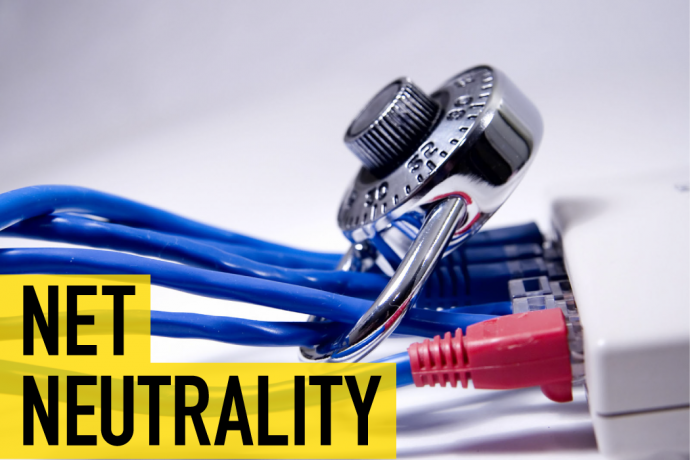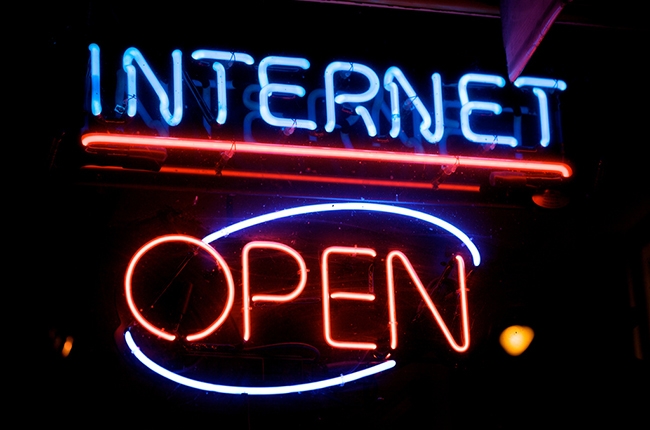
The debate over Net Neutrality is coming to a head. The FCC has confirmed a vote on Net Neutrality will take place on February 26, 2015. In an attempt to usurp the FCC, Republicans in both the House and the Senate have come up with their own plan. A Republican bill was introduced on January 16 and would basically remove regulatory authority over broadband from the FCC.
The issue at hand is whether or not all traffic on the internet should be treated equally or if ISPs can charge content providers for increased speeds and bandwidth. Net neutrality is how the internet has functioned up until recently. All traffic treated equally, with no priority to content. The topic was brought to mainstream awareness via a highly publicized battle between Comcast, an internet service provider, and Netflix, a digital content provider. Comcast attested that Netflix was responsible for taking up large amounts of bandwidth and network resources and should pay to have their content delivered. Netflix rebutted stating that both Netflix and Comcast customers have already paid for their respective services, and that they should not be required to pay an additional fee. After attempting to access Comcast networks through third party providers, Netflix was eventually forced into a deal requiring them to pay for direct access to Comcast customers. One of the strongest effects of broadband providers charging content providers to reach customers, is that it has the potential to create monopolies and eliminates competition. If companies like Comcast and Verizon have the ability to speed up or slow down access to content based on a company’s ability to pay, this will make it harder for new companies to enter the market.
The FCC’s vote next month is to determine whether or not to reclassify broadband providers as common carriers, companies that serve as transporters of goods and services whose regulations fall under government regulatory bodies. This reclassification would place broadband under the oversight of Title II of the Communications Act of 1934. The Republican plan, while on the surface appears to echo the goals of the FCC, actually undermines FCC authority and would prevent the reclassification of broadband as a utility under Title II. It would reclassify broadband as an Information Service under the General Provisions of Title I, which would allow broadband providers to operate mostly outside the regulatory reach of the FCC.
The net neutrality debate has brought to light how much power the internet service providers and their mother companies have in Washington. While Tom Wheeler, the Chairman of the FCC, has finally come forward acknowledging the need for net neutrality, he had previously held a quite different view. When President Obama first urged the FCC to protect net neutrality, Wheeler was quoted as saying “What you want is what everyone wants: an open Internet that doesn’t affect your business…What I’ve got to figure out is how to split the baby.” Wheeler is another example of how our government loves to put the fox in charge of the hen house. Wheeler was the former President of the National Cable and Telecommunications Association and CEO of the Cellular Telecommunications & Internet Association. Prior to being appointed by President Obama, Wheeler was a lobbyist for the Cable and Wireless industries. According to Forbes Magazine, Wheeler has “flip flopped” in the direction of supporting the reclassification to Title II after experiencing months of pressure from advocacy groups, companies like Netflix and the commander in chief himself.
The FCC vote marks an important milestone in the battle over net neutrality. While the vote is likely to pass, you can expect a lengthy series of court battles by industry lobbyists and congressional hearings by the Republican controlled House and Senate who stand to lose over the decision.
Anonymous recommends: Protect your PC and mobile devices from hackers & governments and surf anonymously
__________________________________________________________________________________________________–
http://cir.ca/news/legal-challenges-to-net-neutrality
http://en.wikipedia.org/wiki/Common_carrier
http://qz.com/256586/the-inside-story-of-how-netflix-came-to-pay-comcast-for-internet-traffic/
http://www.theverge.com/2015/1/16/7558715/net-neutrality-new-republican-bill-limit-fcc







“If companies like Comcast and Verizon have the ability to speed up or slow down access to content based on a company’s ability to pay, this will make it harder for new companies to enter the market.”
Wait, if they are a start-up company, they would be more in number, make less demand on the system, and have less capital to expend, therefore they would get a cheaper rate subsidized by the big boys. What do I have wrong?
Agreed. We must send these bastards down to hell to rot! They ain’t touching OUR internet!
Well you get what you pay for! If you’re a section 8 bum you get 56k for free from the TAX PAYERS, if you make a 120,000 a year like I do then you get terabyte speed like I do. Understand you PINKO???
This is some serious shit, why won’t they just leave it alone.
Because they are greedy bastards. I will not let them touch OUR internet. Fuck them.
Why was Facebook not charged extra. I’m sure it takes up tons of bandwidth. But comcast would never do that. If Facebook told comcast that they would simply disallow access via comcast, comcast would lose most if not all of their clients.
Because Facebook and HD video content are very different in terms of Bandwidth. looking at selfies VS HD movies is a massive difference regardless of the volume of FB users. your average HD quality movie is roughly 2GB to 4 GB depending on the quality. Your FB images are going to be a couple of MB in size. It will add up but not even close to an HD movie unless you are site ripping.
It is simple people, the ISPs have cornered themselves by offering faster and faster speed to compete until they had to offer unlimited access for a price and now they are committed. I pay about $100/month for an unlimited 100Mbit/sec fibre connection which I think is reasonable. Issue is their shareholders want more return on their investment.
But virtually every other major (and most minor) countries in the world offer faster speeds, better coverage, and at less cost. The US ISP providers do less for more than anyone else.
I pay $85 a month for a topped-out 2.4 DSL. There are no other options, and I had to get a “business class” to avoid being capped.